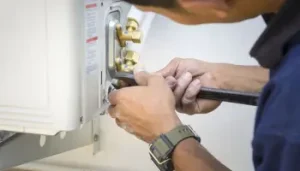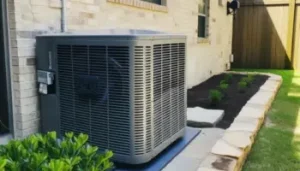Selecting the perfect HVAC (Heating, Ventilation, and Air Conditioning) system for your home involves considering several factors to ensure optimal comfort, efficiency, and cost-effectiveness. At Diamond Heating & Cooling, we understand the importance of making an informed decision when it comes to your HVAC needs. Let’s explore different types of HVAC systems, factors to consider, and key insights to guide your purchase.
Types of HVAC Systems
1. Central Air Conditioners
Description: Central air conditioners distribute cooled air throughout your home via ducts. Suitable For: Homes with existing ductwork, larger spaces requiring consistent cooling. Benefits: Effective cooling for entire homes, often more energy-efficient than window units.
2. Heat Pumps
Description: Heat pumps provide both heating and cooling by transferring heat between indoor and outdoor units. Suitable For: Moderate climates, homes looking for year-round comfort with one system. Benefits: Energy-efficient operation, cost-effective heating in mild winters.
3. Ductless Mini Splits
Description: Ductless mini splits deliver conditioned air directly into individual rooms or zones without ductwork. Suitable For: Homes without ducts, room additions, or specific zones requiring independent temperature control. Benefits: Energy-efficient, customizable zoning, quieter operation than central AC.
Factors to Consider When Selecting an HVAC System
1. Home Size and Layout
- Square Footage: Determine the size of your home to ensure the HVAC system can adequately heat or cool every room.
- Layout: Consider the layout and number of floors to determine if ductwork is feasible or if ductless systems are more suitable.
2. Climate Considerations
- Local Climate: Choose a system that matches your climate’s heating and cooling demands.
- Energy Efficiency Ratings: Look for systems with high SEER (Seasonal Energy Efficiency Ratio) ratings for air conditioners and HSPF (Heating Seasonal Performance Factor) for heat pumps.
3. Energy Efficiency
- Energy Star® Certification: Opt for Energy Star® certified systems that meet strict energy efficiency guidelines, potentially qualifying for rebates or incentives.
- Long-Term Savings: Consider lifetime energy costs alongside upfront expenses to evaluate the system’s overall affordability.
HVAC System Costs and Installation Considerations
1. Initial Costs
- Equipment Costs: Compare prices of different HVAC systems based on type, brand, and efficiency ratings.
- Installation Costs: Factor in installation expenses, including ductwork modifications and labor fees.
2. Maintenance and Operating Costs
- Routine Maintenance: Budget for regular maintenance costs to ensure peak performance and longevity.
- Operating Costs: Estimate monthly energy bills based on the system’s efficiency and your local utility rates.
Available Rebates or Incentives
1. Federal and Local Rebates
- Energy Efficiency Programs: Check for rebates offered by federal or local governments for upgrading to energy-efficient HVAC systems.
- Utility Company Incentives: Some utility providers offer incentives or discounts for installing qualifying energy-efficient equipment.
Conclusion
Choosing the right HVAC system involves careful consideration of your home’s size, climate, energy efficiency requirements, and budget. At Diamond Heating & Cooling, we’re committed to confidently helping you navigate this process. Contact us today to discuss your HVAC needs and explore our wide range of energy-efficient solutions. Let us help you achieve optimal comfort and savings with the perfect HVAC system for your home.



